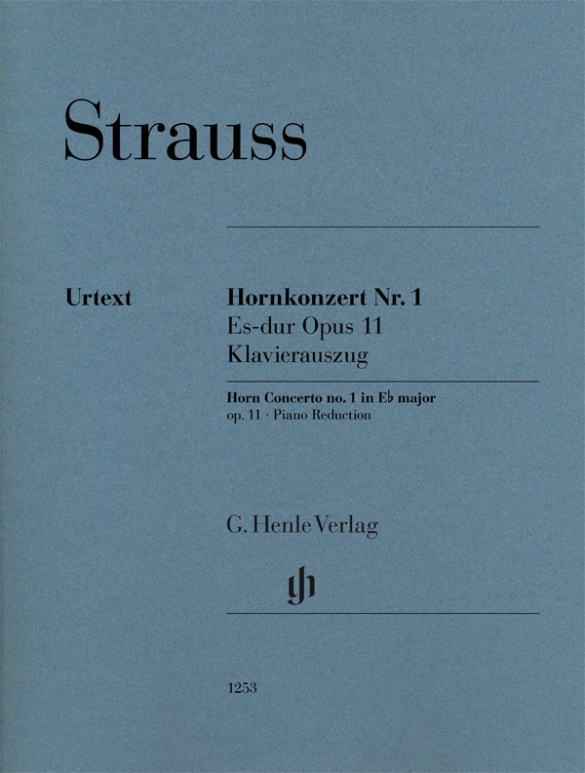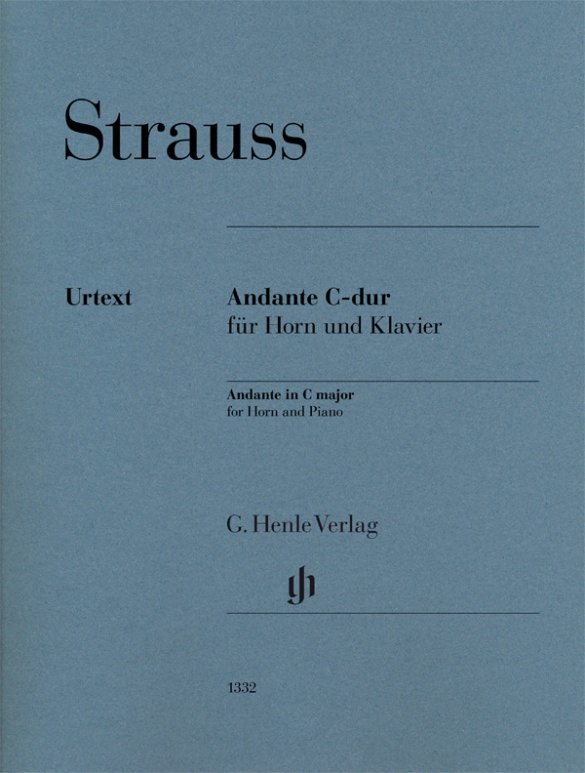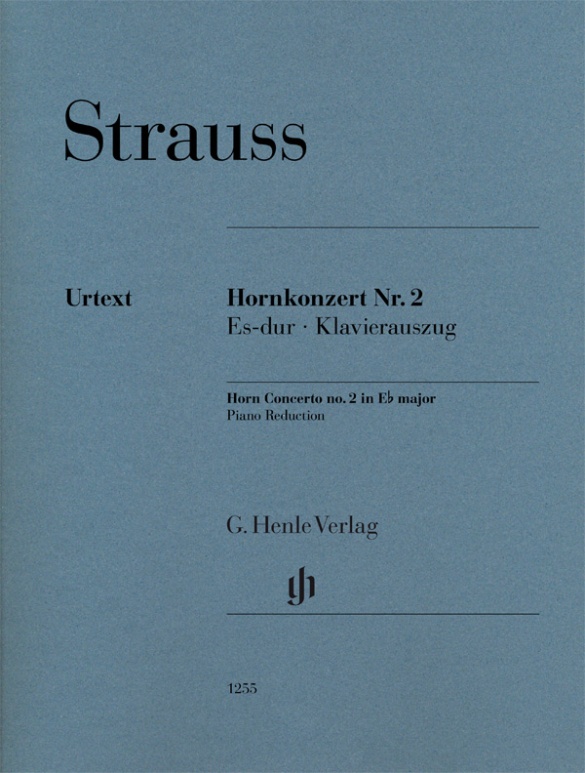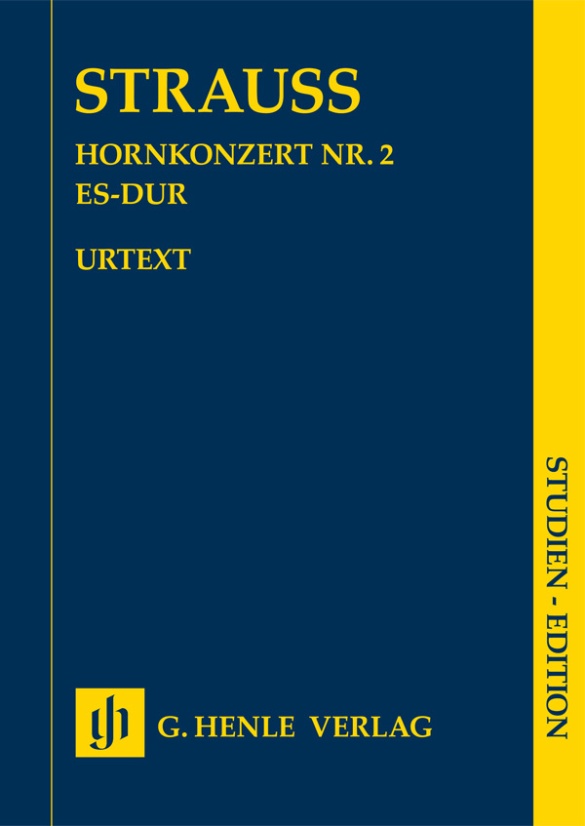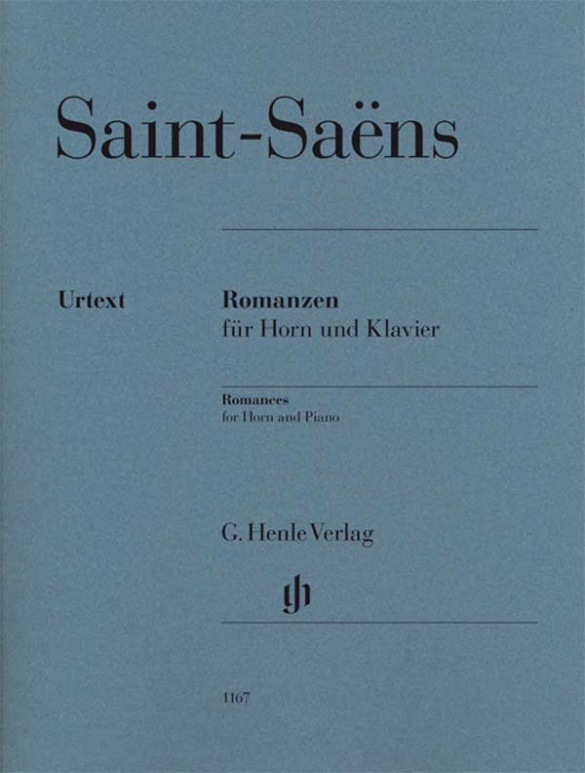Richard Strauss
Horn Concerto no. 1 E flat major op. 11
With his first horn concerto, the merely eighteen-year-old Richard Strauss succeeded in producing a captivating masterstroke. To this day, the concerto is beloved throughout the world (not only) by horn players, and together with Mozart’s masterworks numbers among the essential pieces in the instrument’s repertoire. Peter Damm, former principal horn for the Staatskapelle Dresden and world-class soloist, has not only performed the concerto publicly over 170 times himself, but has also presented pivotal research findings and publications on its genesis. Prepared after reviewing all surviving sources, the Urtext edition he has edited may thus been regarded as the edition of reference. For use in lessons and for performances, the especially playable piano reduction by Johannes Umbreit is a great help.
内容/詳細
作曲家について
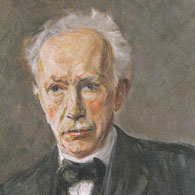
Richard Strauss
One of the most important opera composers of the twentieth century. His oeuvre comprises fifteen operas, nine symphonic poems, instrumental concerti, and a large number of songs. His stage works are marked by their great variety of genre and subject matter.
| 1864 | Born in Munich on June 11, the son of Franz Joseph Strauss, principal horn player in the court orchestra. Receives instruction in piano, violin, and composition. |
| 1885–86 | Conductor at the Meiningen Court Orchestra, initially under the tutelage of Hans von Bülow. |
| 1886 | Music director at the Munich Court Theatre. |
| 1887–1903 | He increasingly devotes himself to the symphonic poem, including “Tod und Verklärung” (“Death and Transfiguration”) in C minor, Op. 24; “Till Eulenspiegels lustige Streiche” (“Till Eulenspiegel’s Merry Pranks”) in F major, Op. 28; “Also sprach Zarathustra,” Op. 30; “Symphonia Domestica” in F major for large orchestra, Op. 53. |
| 1889–94 | Music director in Weimar. First Kapellmeister in Munich in 1894, in Berlin at the Royal Court Opera from 1898–1910. |
| 1905 | Breakthrough with the premiere of “Salome,” Op. 54. |
| 1906 | Beginning of his collaboration with Hugo von Hofmannsthal on the harmonically progressive opera “Elektra,” Op. 58, premiered in Dresden in 1909. |
| 1911 | Sensational premiere in Dresden of “Der Rosenkavalier,” Op. 59, which refers back to operatic tradition and makes him the leading German opera composer. He decides to dedicate himself primarily to operas: “Ariadne auf Naxos,” Op. 60 (1912); “Intermezzo” Op. 72 (1924); “Die ägyptische Helena,” Op. 75 (1928); “Arabella,” Op. 79 (1933); “Die schweigsame Frau,” Op. 80 (1935); “Friedenstag,” Op. 81, and “Daphne,” Op. 82 (1938); “Die Liebe der Danae,” Op. 83 (1944). |
| 1919 | Director of the Vienna State Opera. Premiere there of “Die Frau ohne Schatten,” Op. 65. |
| 1931 | Collaboration with Stefan Zweig. |
| from 1944 | Composition of his last works: Metamorphosen, for 23 solo strings, Oboe Concerto in D major, Four Last Songs. |
| 1949 | Death in Garmisch-Partenkirchen on September 8. |
校訂者や運指担当者について
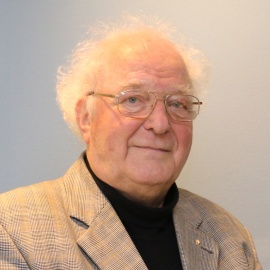
Peter Damm (校訂)
Peter Damm was born in 1937 in Meiningen (Thuringia). After studying at the Hochschule für Musik in Weimar between 1951-1957 under Professor Karl Biehlig, he began his musical career in 1957 as solo hornist with the orchestra of Gera (Orchester der Bühnen der Stadt Gera). Two years later he became principal horn of the Gewandhaus Orchestra Leipzig, a position he held until 1969. From 1969 to 2002 Peter Damm was principal horn with the Dresden State Orchestra (Staatskapelle). On his retirement the orchestra made him an Honorary Member. Other titles conferred upon him include that of Kammermusiker (Chamber musician) in 1967 and Kammervirtuose (Chamber virtuoso) in 1971.
Alongside his orchestra work, Peter Damm also taught at the “Carl Maria von Weber” Conservatory in Dresden, as well as giving international masterclasses and running workshops in Europe, Japan and the United States. He has performed as soloist and chamber musician in almost all European countries, as well as in North and South America and Japan.
Between 1986 and 2018 Peter Damm was President of the International Competition for Wind Instruments in Markneukirchen (Saxony). He is an Honorary Member of the International Horn Society, of the Bavarian Horn Society and the Mozart Society in Saxony. Peter Damm has received numerous prizes and awards. His artistic prowess has been documented on many recordings and through radio broadcasts. His extensive repertoire covers solo, chamber music and concert literature from the 18th century up to and including contemporary music.
After the opening concert of the International Horn Symposium in La-Chaux-de-Fonds (Switzerland) in 2007, Peter Damm retired from the concert podium, also as a soloist. Since then he has dedicated himself to many diverse enterprises: scholarly research into Richard Strauss’ horn concertos, where the investigation into the sources is sometimes similar to detective work, tracing and editing rare literature for the horn, and arrangements for horn ensembles.
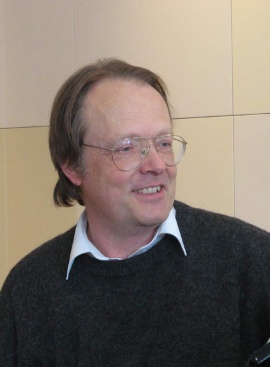
Johannes Umbreit (ピアノ・スコア)
Prof. Johannes Umbreit studied the piano at the Musikhochschule in Munich. From 1987 onwards he was a regular accompanist at courses given by Wolfgang Schneiderhan, Thomas Brandis, Ljerko Spiller, Igor Ozim, Olga Woitowa, Ernő Sebestyén, Walter Nothas, F. Andrejevsky, Denis Zsigmondy and Zakhar Bron amongst others. He has appeared in numerous radio and TV broadcasts and plays chamber music with members of the Bavarian State Orchestra, the Munich Philharmonic Orchestra and the Bavarian Radio Symphony Orchestra.
He is on the jury of different international competitions and has been invited to several international music festivals. Umbreit was a teacher for almost ten years at the Musikhochschule in Munich and at the same time a lecturer for chamber music and piano accompaniment at the Richard Strauss Conservatory. Since 2008 he has been a lecturer at the Hochschule für Musik und Theater München. As the long-serving managing director of the Richard-Strauss-Gesellschaft, he was made an honorary member of the board in 2009. In May 2011, the Bavarian Minister of Culture appointed Johannes Umbreit an honorary professor of the Hochschule für Musik und Theater München on the suggestion of its academic senate.
製品安全に関する情報

G. Henle Verlag
製品の製造元に関する情報はこちらでご覧いただけます。G. Henle Verlag
Forstenrieder Allee 122
81476 München
info@henle.de
www.henle.com
L’éditeur put s’entourer de collaborateurs de prestige avec le hautboïste Hans-Jörg Schellenberger, ancien membre du Philharmonique de Berlin et le légendaire corniste Peter Damm, de la Staatskapelle de Dresde, pour superviser ces éditions. Dans ce type de répertoire qui parle plus aux praticiens de l’instrument qu’aux musicologies, de telles collaborations sont une plus-value indéniable.
Crescendo Magazine, 2020Der Herausgeber Peter Damm hat für die hier vorliegende Urtext-Ausgabe die autorisierten Quellen von Richard Strauss herangezogen. Der akribisch gearbeiteten Ausgabe liegt eine intensive Recherche zugrunde, die Klarheit verschafft und eine Bereicherung ist für das Verständnis und die Möglichkeiten dieses brillanten Werks.
Das Orchester, 2021おすすめ
autogenerated_cross_selling
このタイトルを含む他の版
このタイトルを含む他の版


